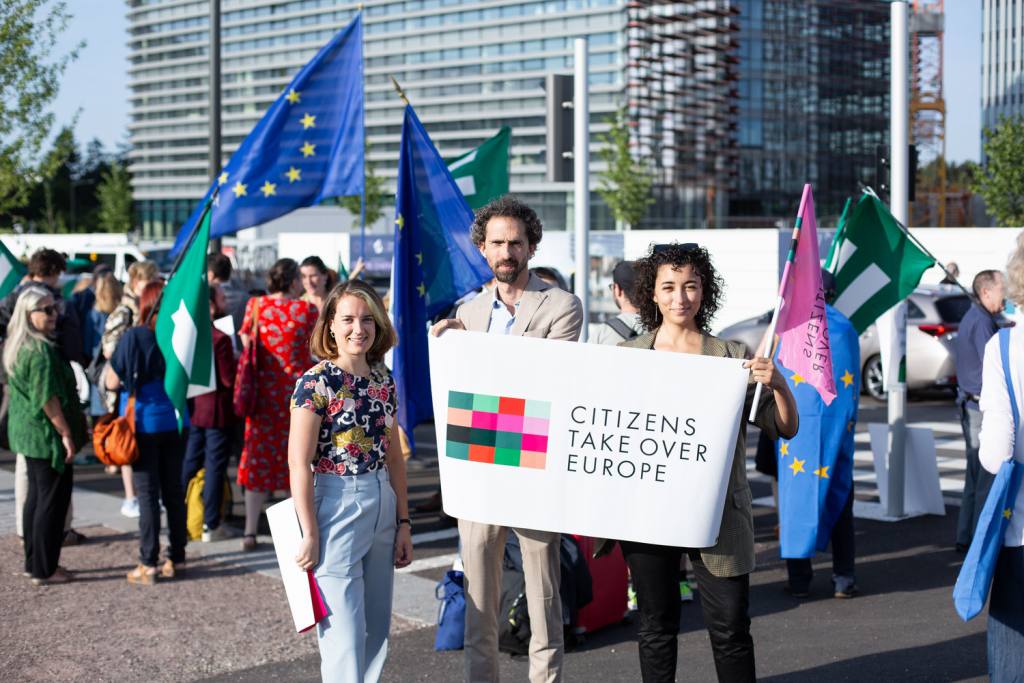
In an era where democracy is under siege across the globe, the European Parliament stands as a beacon of hope and a stalwart defender of democratic values and the rule of law. Now more than ever, it is imperative that we fortify our commitment to democracy by spearheading a transformative initiative: the creation of the first Democracy Intergroup.
Why the Urgency?
Democracy is not just a foundational principle; it is the very essence and key of our collective future. As the heart of democratic governance in the European Union and beyond, the European Parliament has a profound responsibility to not only uphold but also to invigorate democratic engagement and strengthen the deliberative public sphere, at all levels, from the local to the supranational one. Amidst growing challenges, European Parliamentarians have a unique opportunity to make a bold statement by establishing an intergroup dedicated to this vital cause.
Our Democratic Mandate
The Treaties provide that the European Union is built on the pillars of both representative and participatory democracy, with a fundamental right for citizens to engage in the democratic process. This principle is not a mere ideal but a dynamic force that should permeate every facet of our work—legislative and non-legislative alike. Strengthening this participatory democracy requires a concerted effort across all parliamentary committees, underscoring the need for a dedicated intergroup. Many civil society organisations supporting the creation of the intergroup are running deliberative and inclusive democratic assemblies and processes across the European territory, and can provide the crucial bridge between representatives and the citizenry, with a rooted transnational approach.
Why an Intergroup?
An intergroup offers the flexibility and inclusiveness that traditional committees often lack. It would serve as a dynamic platform for engaging a broad spectrum of civil society, including citizens, residents, and various organizations. By connecting with grassroots movements, academics and external democratic activities, an intergroup can bridge gaps and foster genuine dialogue and expose our political representatives to the democratic experimentation happening across the Union.
Key Objectives of the Democracy Intergroup
1. Innovate in Participative Democracy: Explore cutting-edge methods for enhancing citizen involvement in EU policy-making. Embrace established tools and techniques from European Citizens’ Initiatives (ECI) to petitions to new ones such as citizens’ assemblies and panels, and other forms of deliberative practices, that can strengthen citizens’ voices, bringing them closer to their representatives and inform the deliberations of parliamentarians.
2. Boost Electoral Engagement: Work alongside civil society to improve voter turnout and address electoral challenges, including registration issues and gender-balanced lists. Monitor and influence ongoing electoral reforms to ensure broader and fairer participation.
3. Champion Inclusivity and Representativity: Ensure our democracies reflect the EU’s rich diversity. Actively promote the participation of marginalized and underrepresented groups, including those affected by policies but lacking voting rights.
4. Enhance Institutional Transparency: Build trust through greater openness in decision-making processes. Make EU institutions more accessible and transparent to all citizens.
5. Navigate New Technologies: Investigate how emerging technologies, including AI, impact democratic systems and explore their potential to enhance democratic engagement.
6. Foster Civic Education: Support initiatives that educate citizens about their rights and the EU’s workings, empowering them to actively engage in democratic processes.
7. Protect Civil Society and Civic Spaces: Safeguard the vital role of civil society organizations in advocating for human rights, environmental protection, and social justice. Ensure these organizations can operate freely and effectively.
8. Integrate Democracy into Enlargement and Treaty Change: Make sure democratic practices are central to the EU’s enlargement process, reinforcing democratic values in new and aspiring member states, and that treaty change reinforces European democracy
9. Connect the EU’s external action and democratic practices: the role of democracy in the EU’s external action was an important theme in the Conference on the Future of Democracy, and has trade, security, aid and election monitoring dimensions amongst others.
10. Monitor and Promote Best Practices: Develop mechanisms to assess the impact of democracy initiatives, ensuring they meet citizen needs and drive continuous improvement.
Take Action Now
The time to act is now. Establishing a Democracy Intergroup will send a powerful message that the European Parliament is unwavering in its commitment to democratic principles. It’s an opportunity to lead by example, foster deeper citizen engagement, and strengthen the very fabric of our democratic institutions.
Let’s seize this moment to champion democracy and make a lasting impact. Create a Democracy Intergroup today!


